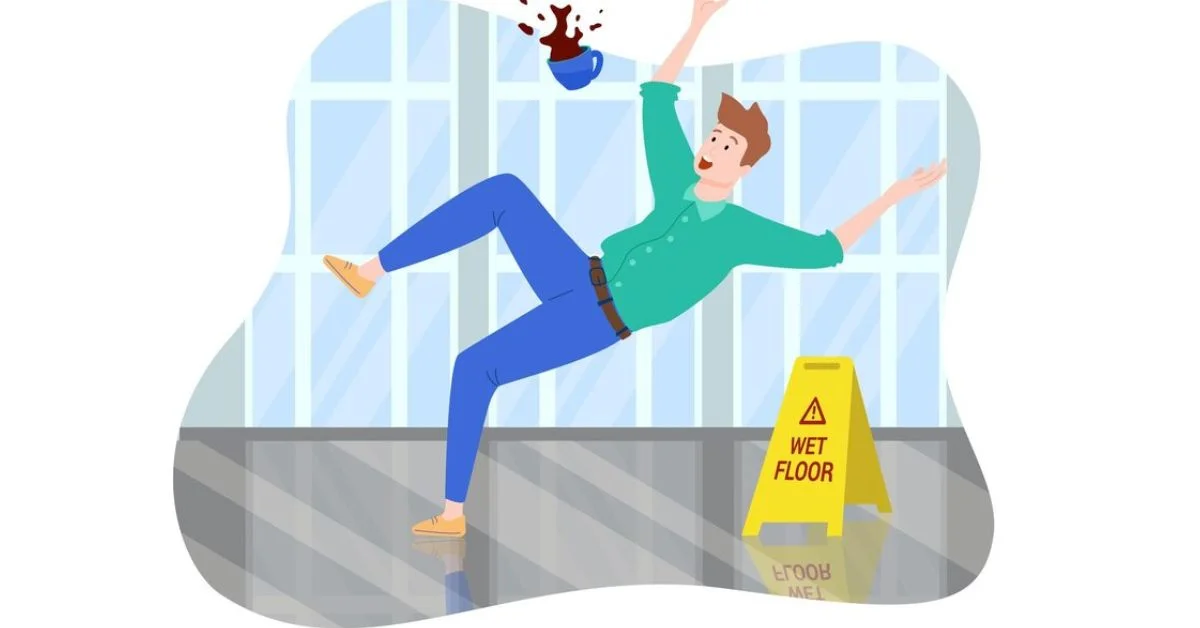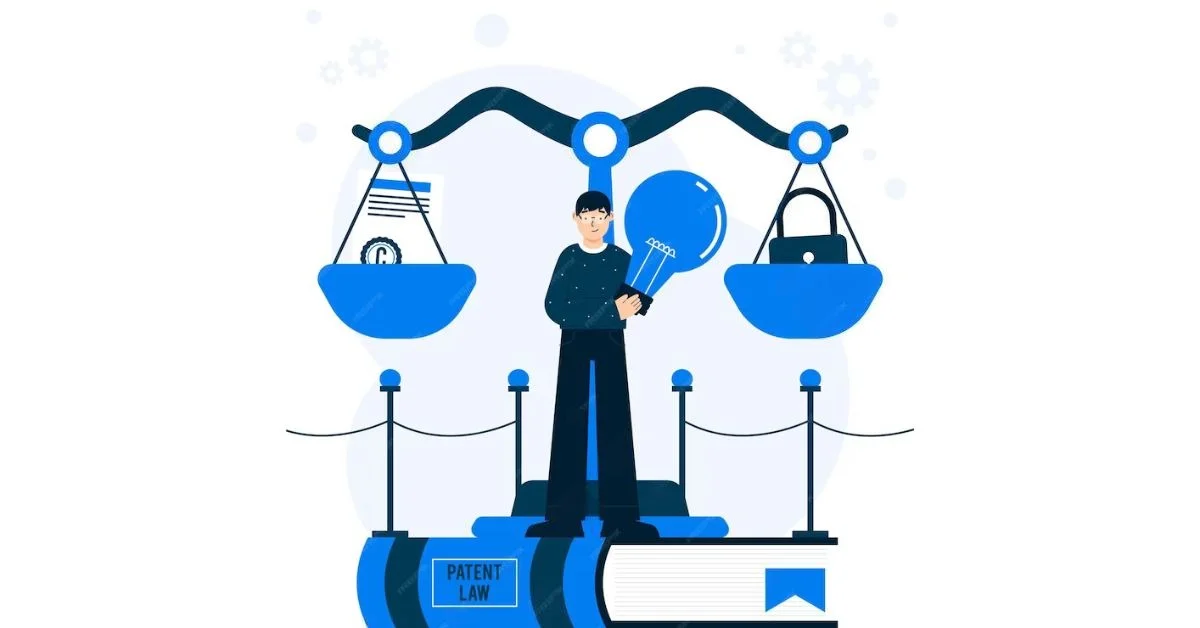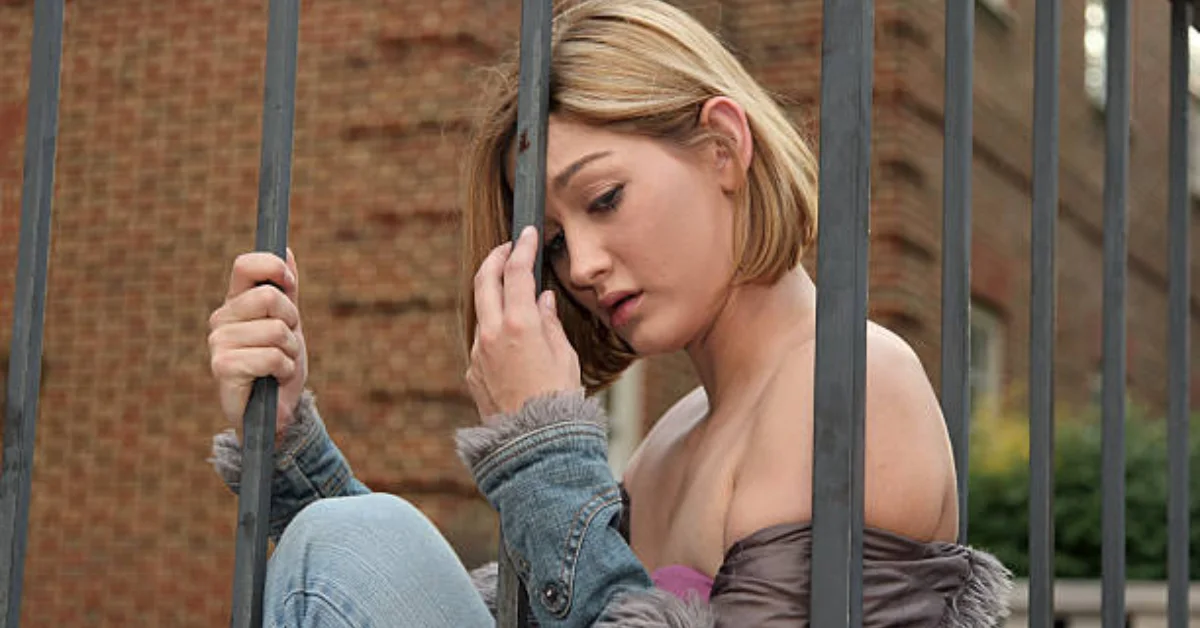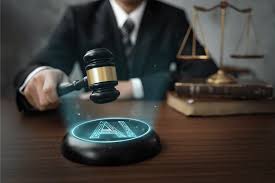LAW
Slip and Fall Accidents in Hospitals: A Dual Perspective on Patient and Visitor Safety

Slip and fall accidents in healthcare facilities may occur because of cracked or uneven flooring. An experienced slip and fall lawyer knows how to investigate the cause of these accidents and establish proper liability. Providing signage in hazardous areas or areas under maintenance helps prevent slips, trips, and falls in hospitals. Here are other ways to prevent these accidents and promote patient and visitor safety in healthcare setups:
Adding Anti-slip Floor Coating
Installing anti-slip floor coatings is a worthwhile investment to help hospitals avoid unexpected legal problems and minimize liability. These coatings help create textured floor surfaces that increase grip and traction. Non-slip coatings are ideal for hospitals with vinyl, wood, marble, or tile flooring, as these floors become slippery when wet.
Providing Ample Lighting
Ample lighting enables patients or visitors to see and avoid wet floors and other slip and fall hazards. Some areas needing adequate lighting in hospitals include walkways, parking lots, hallways, and staircases. Replacing unidirectional lighting fixtures with omnidirectional LED ones can help provide enough light in healthcare settings. Hospital staff also need to regularly check and replace burnt-out bulbs to prevent slip and fall accidents.
Maintaining Stairs and Handrails
Stairs in healthcare facilities need to be even and properly marked to prevent patient missteps and potential accidents. Handrails that are firmly anchored and mounted at appropriate heights reduce the risks of slips and falls. Hospital stairwells must have non-slip treads and proper handrails on both sides to enhance staff, patient, and visitor safety.
Providing Adequate Patient Mobility Aids
Mobility aids enable patients to become more stable and independent when moving around a healthcare facility. The support from mobility aids helps prevent patient falls by minimizing the body weight added to lower limbs. Assistive equipment also reduces the risks of slips and falls by supporting patients when standing up. Some equipment that helps enhance patient safety in hospitals include grab bars, walkers, crutches, canes, and wheelchairs. Hospital staff should be trained and knowledgeable in how to use each of these mobility aids so that they can properly teach patients how to use them.
Decluttering Walkways
Clutter and debris can increase the risks of slips and falls by obstructing a hospital’s walkways and hallways. Unsecured medical tubing, hoses, and electrical cords or wires are examples of clutter that cause accidents in healthcare settings. Clearing the walking areas and safely disposing of used medical equipment prevents potential slips, trips, and falls. Other safety tips include adding more storage facilities, using cord organizers, and covering electrical wires that run along the floors.
Keeping Floors Dry
Water, spilled foods, and other liquids cause hospital floors to become slippery and risky for patients or visitors. Snow and ice on hospital entrances or parking lots can also increase the risks of slip and fall accidents. Pressure dryers, microfiber mops, and fans are some options for drying wet hospital floors more efficiently. Adding barriers around wet or slippery floor areas can help prevent potential accidents and injuries. Other safety tips include giving patients slip-resistant shoes, using water-absorbent mats, and promptly covering or cleaning spills.
How a Slip and Fall Lawyer Can Help You
Slips and falls in hospitals may result in fractured bones, soft tissue injuries, lacerations, or even brain injuries. If a patient or hospital visitor sustains an injury, a skilled attorney can calculate the damages and file a legal claim to help them recover fair compensation. Compensation for such injuries prevents the financial constraints that come with medical bills or lost income. An experienced slip and fall lawyer collects the accident victim’s medical records and other necessary information to accurately calculate damages in a claim.
Slip and fall attorneys also handle insurance companies by negotiating fair settlements for accident victims. The attorneys know the best strategies to counter tactics used by insurance company adjusters. An experienced lawyer has adequate knowledge and skills to navigate the legal process quickly and efficiently.
Seek Legal Help Today
Contacting an attorney after a slip and fall accident in a hospital can ease your legal claim process and aid you in obtaining fair compensation. Reporting the accident, seeking medical help, documenting the accident scene, and maintaining the records enable the attorneys to establish liability. Schedule a consultation with an experienced slip and fall lawyer today.
LAW
Streamlining Justice: Enhancing Due Process

In the realm of justice, the concept of due process stands as a cornerstone of fairness and equity. Ensuring that every individual has the right to a fair trial and legal protection is fundamental to a just society. However, as the complexities of legal cases grow and the volume of disputes increases, the need for streamlined processes within the legal system becomes ever more apparent.
The Importance of Due Process
Before delving into the ways in which due process can be enhanced through streamlining, it’s crucial to understand the significance of due process itself.
Due process is the principle that ensures individuals are treated fairly by the legal system. It guarantees that everyone has the right to notice and a hearing before the government can take away their life, liberty, or property. This procedural safeguard is enshrined in the constitutions of many countries and is considered a fundamental human right.
Challenges in the Current Legal Landscape
Despite the noble principles underlying due process, the current legal landscape is fraught with challenges that can impede its effective implementation. Some of the key challenges include:
- Backlogs and Delays: Overburdened court dockets often lead to significant delays in the resolution of cases, denying individuals timely access to justice.
- Complex Procedures: Legal processes are often convoluted and difficult to navigate, especially for those without legal expertise, creating barriers to effective representation.
- Resource Constraints: Limited resources, both in terms of funding and manpower, can strain the efficiency of legal systems, hampering the timely delivery of justice.
Enhancing Due Process Through Streamlining
To address these challenges and enhance due process, various strategies can be employed to streamline legal procedures:
- Digitalization and Automation: Embracing technology to digitize court processes, automate routine tasks, and enable online filings can significantly reduce paperwork, increase efficiency, and expedite case resolutions.
- Alternative Dispute Resolution: Implementing mechanisms such as mediation and arbitration can help resolve disputes outside of traditional court settings, easing the burden on overloaded court systems and providing quicker resolutions for parties involved.
- Simplified Legal Language: Making legal documents and procedures more accessible through plain language can empower individuals to understand their rights and obligations better, promoting transparency and reducing confusion.
- Case Management Systems: Utilizing case management software can streamline document management, scheduling, and communication among legal professionals, enabling seamless collaboration and efficient case handling.
The Role of a Criminal Justice Lawyer in Streamlining Justice
A criminal justice lawyer in Utah plays a pivotal role in streamlining the justice process, directly impacting the efficacy of enhancing due process. These legal professionals are at the forefront of navigating the state’s complex legal system, advocating for the rights of individuals and ensuring that the principles of fairness and equity are upheld. Their expertise in the intricacies of criminal law and profound understanding of procedural nuances enable them to effectively minimize delays and overcome the challenges posed by backlogs and complex procedures.
By leveraging their knowledge and skills, a criminal justice lawyer in Utah can significantly contribute to the implementation of strategies aimed at streamlining legal processes, from advocating for the digitalization and automation of court systems to supporting the use of alternative dispute resolution mechanisms. Their commitment to justice and proficiency in the legal landscape are essential in the quest to enhance due process, making their role indispensable in the pursuit of an efficient and equitable justice system.
As we navigate an increasingly complex and interconnected world, the need to streamline legal processes and enhance due process becomes paramount. By leveraging technology, fostering innovation, and prioritizing efficiency, we can pave the way for a more accessible, transparent, and equitable legal system for all.
In conclusion, streamlining justice is not just about expediting procedures; it’s about upholding the principles of due process and ensuring that justice is swift, fair, and accessible to all. By embracing innovation and reimagining traditional legal approaches, we can forge a path towards a more just society where rights are protected, disputes are resolved efficiently, and due process is truly enhanced.
LAW
ListCrawler Arrest: Unraveling the Digital Web of Data Breaches and Accountability

Introduction to ListCrawler Arrest
In an era where data flows ceaselessly through the veins of the internet, incidents like the “ListCrawler Arrest” underscore the tension between information freedom and privacy protection. What happens when a shadowy figure or entity harvesting vast troves of personal data meets the law? This article dives deep into the concept of the “ListCrawler Arrest,” unpacking its significance, origins, and the ripples it sends through technology, society, and governance.
Continue your journey: This related article is worth your time.
Defining ListCrawler Arrest: More Than Just a Name
At its core, “ListCrawler Arrest” refers to the apprehension of an individual or group involved in unauthorized mass data collection using automated tools often called “list crawlers.” These crawlers systematically scour websites, forums, and databases to extract user data—sometimes for benign marketing, but frequently for malicious exploitation like identity theft, fraud, or black market sales.
The arrest signals a crucial junction where cybercrime meets enforcement. Unlike traditional cybercrimes focusing on hacking systems, list crawling involves passive but extensive harvesting of data, creating a grey zone in cyber law.
Origins and Philosophical Background: The Rise of Data as the New Oil
The concept of the ListCrawler Arrest emerges from the broader narrative of data’s ascendance as a valuable commodity. Just as the Industrial Revolution transformed raw materials into economic powerhouses, the digital age transformed information into currency.
Philosophically, it echoes debates on privacy versus transparency. Should data, often publicly accessible, be freely collected and traded? Or do individuals retain inalienable rights over how their digital footprints are used? The arrest crystallizes this tension, prompting society to reconsider boundaries and responsibilities in cyberspace.
Real-World Applications Across Sectors
The implications of ListCrawler arrests extend beyond law enforcement. In AI, scraped data feeds machine learning models, raising questions about consent and bias. Businesses use crawled data for competitive analysis and targeted marketing, walking a fine line between innovation and intrusion. Educational platforms track user behavior to tailor learning experiences, while societal debates center on surveillance, consent, and the digital commons.
This incident triggers ripple effects: companies must bolster data protection, regulators refine legislation, and users grow more vigilant. It is a catalyst accelerating the maturation of digital ethics.
How ListCrawler Arrest Differs From Traditional Models?
Unlike conventional cyberattacks, which often rely on breaching security defenses, list crawling exploits publicly exposed or weakly protected data sources. It challenges traditional security paradigms by blurring lines between legal and illegal, passive and active data collection.
The arrest thus spotlights an evolving threat landscape where regulatory and technological frameworks must adapt from static defense to dynamic governance. It’s less a violent break-in than a stealthy gathering of scattered pieces — a digital puzzle solved without the victim’s consent.
Hungry for more knowledge? Our full library is open to explore!
Future Implications: Ethics, Risks, and Opportunities
The ListCrawler Arrest underscores urgent ethical questions. Should data scraping be outlawed or regulated? How do we balance innovation with privacy rights? As AI systems demand larger datasets, will regulation throttle progress or safeguard society?
Risks include increased surveillance, data monopolies, and erosion of trust. Conversely, opportunities arise to design systems prioritizing transparency, consent, and user empowerment.
This event is a harbinger: the digital ecosystem must evolve to uphold human dignity while harnessing data’s transformative potential.
Best Practices: Designing for Ethical Data Use
Organizations and policymakers can learn from this incident by embedding ethical principles into data strategies. Prioritize transparency by informing users about data collection. Adopt privacy-by-design frameworks ensuring minimal data harvesting. Implement robust consent mechanisms and provide accessible opt-out options. Strengthen collaboration between technology developers, regulators, and civil society to craft balanced, adaptable policies.
Above all, cultivate digital literacy, empowering individuals to understand and control their data footprint.
Conclusion: Weaving Humanity Into the Digital Fabric
The ListCrawler Arrest is more than a law enforcement milestone; it is a mirror reflecting our collective struggle to humanize technology. It challenges us to rethink the invisible threads linking identity, privacy, and innovation in the digital age.
As we unravel these threads, the choices we make will shape a future where technology amplifies human values rather than diminishes them — ensuring the web we weave is one of trust, respect, and shared progress.
Don’t miss out on more great reads—click through our featured posts!
FAQs
What is a list crawler?
A list crawler is an automated tool that scans websites to collect large amounts of data, often user information.
Why was the ListCrawler arrested?
They were arrested for unauthorized mass data collection, potentially violating privacy laws.
Is all data scraping illegal?
No, scraping publicly available data can be legal, but it depends on consent, purpose, and jurisdiction.
How does this arrest affect businesses?
It raises awareness for companies to strengthen data protection and review compliance with privacy laws.
What can users do to protect their data?
Users should manage privacy settings, be cautious about sharing personal information, and use secure platforms.
LAW
How AI Is Helping Family Lawyers Work Faster and Smarter

The legal profession is changing quickly, and family lawyers are experiencing this transformation firsthand. With the rise of artificial intelligence (AI), legal professionals working in emotionally sensitive and time-intensive cases are beginning to see real benefits. Family law AI tools are helping lawyers save time, reduce errors, and focus more on their clients.
This article explores how legal AI is improving the way family lawyers work. It looks at specific tasks that AI can handle, the advantages it brings, and why it’s becoming a key part of modern legal practice.
What Is Family Law AI?
Family law AI refers to the use of artificial intelligence in handling legal matters related to families. This includes divorce, child custody, property division, spousal support, and more. Legal AI tools are designed to assist lawyers with tasks that require reading, analyzing, or drafting documents, as well as organizing case-related data.
These tools do not replace lawyers but act as intelligent assistants that help them work faster, stay more accurate, and deliver better service to clients.
Common Challenges in Family Law
Before looking at how AI helps, it’s important to understand some of the challenges family lawyers face every day:
- Managing a large number of documents such as contracts, affidavits, and court filings
- Handling urgent and time-sensitive issues like emergency custody hearings
- Staying focused and compassionate in emotionally charged situations
- Keeping up with changes in family law regulations and case law
These challenges take up a lot of time and effort. AI tools can help by handling the repetitive parts of the job so lawyers can focus on decision-making and client care.
Automating Document Review and Drafting
One of the most time-consuming tasks in family law is preparing and reviewing documents. Legal AI tools can now read, summarize, and even draft contracts, custody agreements, and court documents.
These tools can identify missing clauses, suggest legal language, and catch inconsistencies. As a result, lawyers spend less time proofreading and more time thinking about legal strategy. The accuracy improves, and the chances of costly mistakes are reduced.
Faster and Smarter Legal Research
Legal research is another area where family law AI is making a big impact. Traditional research often takes hours or even days. Lawyers have to search through databases, case files, and legal textbooks to find the right information.
AI-powered research tools speed up this process by analyzing vast amounts of legal content in seconds. Lawyers can simply ask a question in plain language, and the tool will return relevant cases, laws, and summaries. This allows them to prepare more thoroughly and quickly for court or negotiations.
Predictive Insights for Better Decisions
Some advanced legal AI platforms now offer predictive analytics. These systems study past cases and outcomes to provide insights that can guide current decisions. For example, an AI tool might show that in a particular state, courts tend to favor joint custody when both parents are employed full-time.
While AI cannot predict the future, it can help lawyers and clients make more informed choices. This is especially useful in family law, where every decision can have a lasting impact.
Better Client Communication
Family lawyers often receive a high volume of questions and updates from clients. Many of these are routine, such as asking for status updates or requesting documents.
Legal AI tools can help here by handling repetitive client interactions. Some firms use AI-powered chatbots to answer basic questions or collect information from clients. This saves time for the lawyer and provides quicker responses for the client. It also helps maintain better communication throughout the case.
Improved Compliance and Data Security
Family law cases often involve sensitive personal information. This includes financial records, medical history, and custody details. Legal AI platforms are built with security and compliance in mind. They can help ensure that data is stored securely and that only authorized people can access it.
Many AI systems also provide audit logs. These logs show who accessed each file and when, helping law firms maintain trust and transparency with their clients.
AI in Mediation and Settlements
Mediation is a big part of family law. AI tools can support the process by analyzing both sides’ information and suggesting fair outcomes. For example, an AI platform might help divide property based on current market values or recommend a parenting plan that aligns with the best interests of the child.
These insights can reduce disagreements, speed up the mediation process, and lead to more peaceful resolutions. It allows lawyers to guide clients with clear, data-backed options.
Smarter Time Tracking and Billing
Billing is another task where legal AI offers support. AI-powered time tracking systems can automatically record hours spent on different tasks and generate accurate invoices. This helps prevent missed billables and makes it easier for firms to manage their finances.
For smaller law firms or solo practitioners, this can make a big difference in saving time and improving cash flow.
Will AI Replace Family Lawyers?
The idea that AI might replace lawyers often causes concern, but in reality, AI is a tool that supports lawyers rather than replaces them. In family law especially, human understanding, empathy, and judgment are essential.
Legal AI tools are best used to handle the routine and repetitive parts of legal work. This allows family lawyers to focus more on helping their clients through difficult and emotional times.
Final Thoughts
AI is helping family lawyers work faster, smarter, and with greater confidence. From research and document review to client communication and mediation support, family law AI is becoming an essential part of modern legal practice.
By taking over the time-consuming tasks, legal AI tools allow family lawyers to focus on what matters most i.e. delivering quality service, guiding families through tough decisions, and staying ahead in a fast-changing legal environment.
Lawyers who adopt AI are not just keeping up with technology. They are creating more efficient, client-friendly practices that are ready for the future.

 TECHNOLOGY4 months ago
TECHNOLOGY4 months agoBlog Arcy Art: Where Architecture Meets Art

 ENTERTAINMENT5 days ago
ENTERTAINMENT5 days agoExploring the Kristen Archives: A Treasure Trove of Erotica and More

 ENTERTAINMENT2 days ago
ENTERTAINMENT2 days agoKiss KH: The Streaming Platform Redefining Digital Engagement and Cultural Currents

 LIFESTYLE4 months ago
LIFESTYLE4 months agoThe Disciplinary Wives Club: Spanking for Love, Not Punishment

 EDUCATION2 days ago
EDUCATION2 days agoLingrohub Platform: A Complete Student Access Guide

 TECHNOLOGY2 days ago
TECHNOLOGY2 days agoCasibom: The Digital Alchemy Reshaping Systems, Society, and Self

 ENTERTAINMENT3 weeks ago
ENTERTAINMENT3 weeks agoMonkeyGG2: Your Personal Gaming Hub

 TECHNOLOGY5 days ago
TECHNOLOGY5 days agoOurDream.ai Review: The Generative Art Engine Rewiring Imagination










